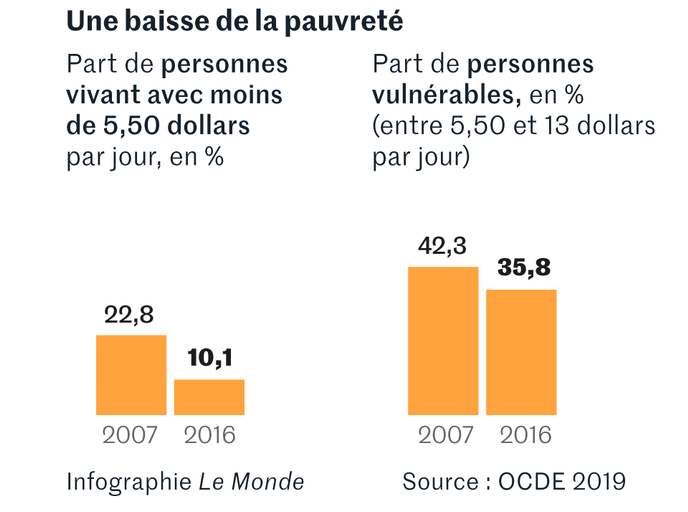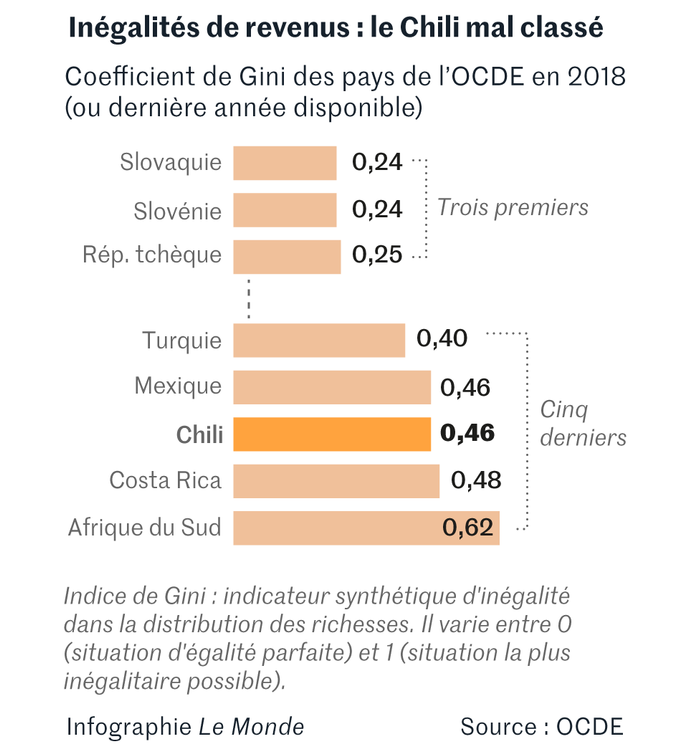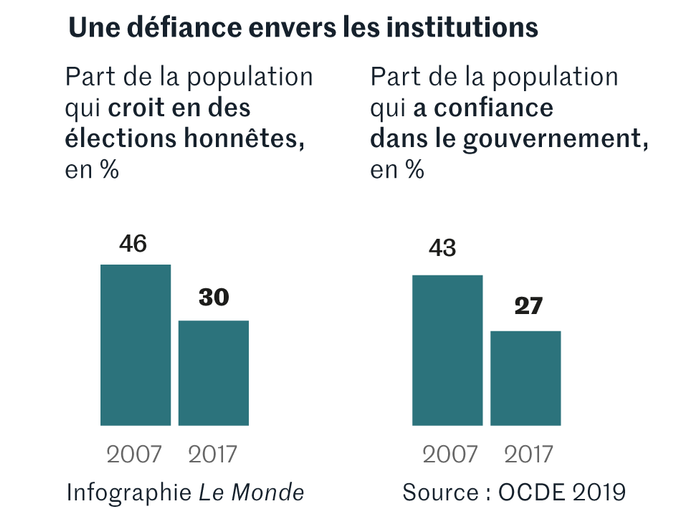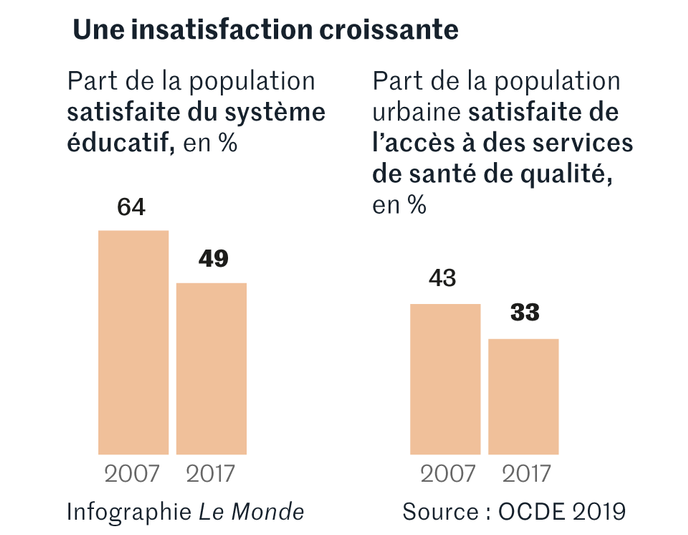With dynamic growth and low inflation, the country is often set up as a model in Latin America. But these figures hide important fractures.
Chile is a "True oasis" in "Latin America weakened"welcomed, in early October, the President of the Republic Sebastian Piñera.
Riots, state of emergency, curfew a country " in war " that the head of state described a few days later, in the evening of Sunday, October 20, after a murderous weekend that killed eleven people.
"The immediacy of the uprising is surprising, but not really the extent of the discontent"However, says Cécile Faliès, senior lecturer in geography at the University Paris-I-Panthéon-Sorbonne and specialist country.
Important fractures
Often set up as a model for the subcontinent, Chile became the first country in the region to join the Organization for Economic Co-operation and Development (OECD) in 2010. For several decades, it has experienced spectacular growth boosted by copper exports, its main wealth. At the same time, its poverty rate has fallen sharply and now stands at 8.6% of the population. As for its indicators, they remain in good shape, especially with growth expected to reach, this year, 2.5% of gross domestic product (GDP).

But this idyllic picture hides, however, important fractures. Ansi, income disparities in the country are more than 65% above the OECD average. And, in 2018, his "GINI coefficient" – an indicator of inequality – was 0.46. Or one of the worst in the organization.

According to the United Nations Development Program (UNDP), in 2017, 1% of Chileans concentrated 33% of the country's income. Among them, the current president, Sebastian Piñera, whose fortune is estimated at 2.8 billion dollars (2.5 billion euros) by the magazine Forbes. During the recent demonstrations, many protesters have also denounced the economic power of leaders and the injustice of a system that favors capital above all; many posters referred to corruption scandals involving powerful groups close to the head of state.

"The mobilized base has expanded"
If it is the announcement of an increase in the price of the metro ticket that marked the beginning of the dispute, "The movement goes far beyond the issue of ticket prices, insists Mme Faliès. In the processions, we hear this slogan: "We do not fight for 30 pesos, but against thirty years of liberal politics."
Very quickly, the demands of the protesters widened to the challenge of an economic model inherited from the dictatorship of Augusto Pinochet. Based on the neoliberal doctrine of the Chicago School, it was marked by privatization, the reduction of the role of the State and almost complete liberalization of the economy, from the health sector to the education sector, through the pension system.

Access to secondary education, and above all, is very expensive. Same thing for medical care. "During one of my studies in the country, I was confronted with the case of a lawyer who was forced to drop out of school for a semester to pay the bill for his medical treatment.", says Cecile Falies. As for the public pension, the amount does not even reach the threshold of the minimum wage and many elderly people are in situations of poverty.
Will the challenge continue? In recent years, the country has already been shaken by smaller protests, such as those of retirees in 2017 or students in 2011. But, "There, the mobilized base has widened, estimates Mme Faliès. The neoliberal state in Chile was both very early and marked by its ultraorthodoxy. However, today, we can consider that it has given everything, there is more hope that this model of development is bearing fruit. "



